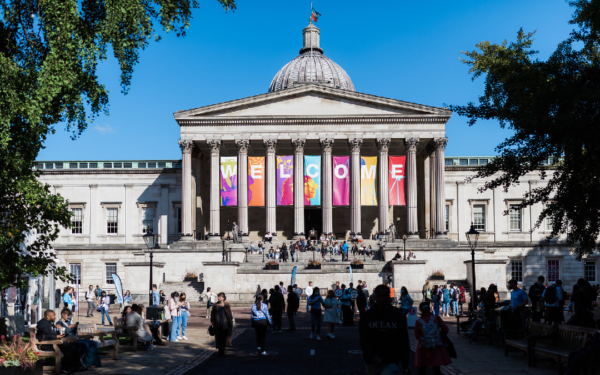
London, United Kingdom
Critical and Postcolonial Approaches to World Politics
When:
20 July - 07 August 2026
Credits:
7.5 EC
Read more
Political Science
When:
03 July - 12 July 2024
School:
Institution:
Central European University
City:
Country:
Language:
English
Credits:
2 EC
Fee:
500 EUR

This is an intensive, eight-day course initiated by the Open Society University Network where student leaders from around the globe will strengthen their skills, knowledge, and understanding of civil society; expand their understanding of global threats to civil society outside of their own communities and share experiences and learn from their international colleagues. Students must demonstrate engagement in community work through student-led initiatives, community-based work, or other leadership experience.
This course is an experiential learning course that includes shared group projects, fieldwork, site visits, workshops, and networking with civic leaders. In this spirit, students will write short response papers and reflections and explore topics through storytelling. The culminating paper will be a project proposal and presentation that addresses the themes relevant to their own community-based project work.
Jonathan Becker, Center for Civic Engagement/Political Studies, Bard College, New York, USA Chrysovalantis Margaritidis, Civic Engagement/Philosophy, Bard College, New York, USA
This course will provide a platform for students from across the globe to explore their own understanding of civil society both in a local and global context. The course is most appropriate for undergraduate student leaders who are already working within a community but can include graduate student leaders and is open to students throughout the OSUN network and beyond.
To enhance skills related to community organizing, project development, and coalition building on a local and international scale. To contextualize leadership within international and community frameworks. To understand how to center community knowledge through case studies, text, and lectures. To redefine notions of leadership through workshops and practical applications. To help students develop shared definitions of engagement. To expand students’ existing community projects beyond their current scope.
Fee
500 EUR, payable until May 28
When:
03 July - 12 July 2024
School:
Institution:
Central European University
Language:
English
Credits:
2 EC

London, United Kingdom
When:
20 July - 07 August 2026
Credits:
7.5 EC
Read more

Colchester, United Kingdom
When:
16 February - 20 February 2026
Credits:
4 EC
Read more

St. Gallen, Switzerland
When:
15 June - 19 June 2026
Credits:
4 EC
Read more